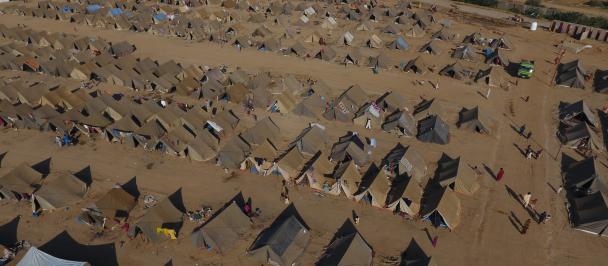Islamabad, 04 February 2022— The United Nations Development Programme (UNDP) Pakistan, Italian Ministry of Foreign Affairs, and the International Cooperation- Directorate General for the Development Cooperation (MAECI-DGCS) formally launched the project “Glaciers & Students—A Scientific-Based Approach to Monitor Climate and Glaciers in Pakistan Mountain Regions to Support Hydrogeological Risk Prevention”. The 1.1 million Euros project will be based in Gilgit-Baltistan to predict hazards originating from glacier change.
Italian Ambassador to Pakistan, H.E. Andreas Ferrarese and Resident Representative of UNDP Pakistan, Mr. Knut Ostby signed the agreement, at the Italian Embassy, in Islamabad today. Representatives from Italian Agency for Development Cooperation (AICS) were also present at the occasion.
Apart from North Pole, there is more glacial ice in Pakistan than anywhere else in the world. However, these glaciers are rapidly melting due to climate change, putting people’s lives at risk. Glaciers remain the least monitored resources in Gilgit-Baltistan due to lack of capacities, technology and accessibility. Lack of information on glacial changes make it difficult to predict hazards originating from glacier change.
The overall aim of the project is to prevent risks of Glacial Lake Outburst Floods (GLOF) and hydrogeological hazards in Pakistan’s mountain areas, by establishing an evidence-based assessment and monitoring system for mountain glaciers. The project will actively involve local universities in the monitoring activities. A dedicated training and capacity building programme will be designed for the students in order to ensure long term sustainability of the project.
Both partners agreed that the project will contribute to advancement of scientific research on glaciers and encourage students’ involvement in such initiatives.
For additional information, please contact Ayesha Babar at ayesha.babar@undp.org or +92 (51) 835 5650
### ### ###
UNDP is the leading United Nations organization fighting to end the injustice of poverty, inequality, and climate change. Working with our broad network of experts and partners in 170 countries, we help nations to build integrated, lasting solutions for people and planet.
Learn more at undp.org or follow at @UNDP

 Locations
Locations






